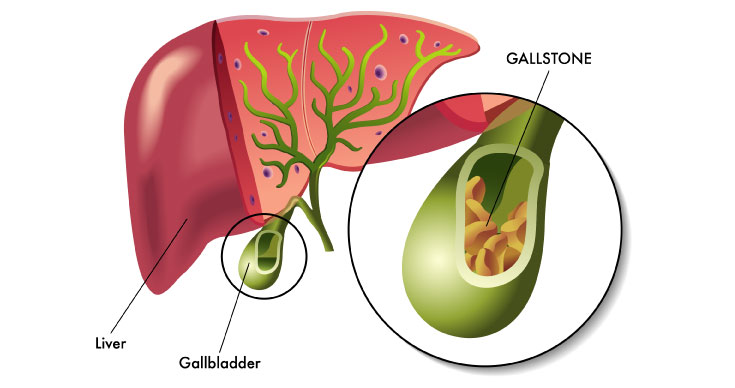A Brief Introduction To Gallstones And Gallstone Surgery
The gallbladder is a pear-shaped organ, located in the upper right side of the abdomen, right under the liver. It secretes bile juice, which helps in digestion. When this digestive enzyme solidifies, it forms hard, gallstones. Gallstones are of 2 types, cholesterol stones (when too much cholesterol is present in the bile) and pigment stones (when too much bilirubin is present in the bile). It is becoming very common these days and thus, a lot of hospitals are offering gallbladder stone surgery. Let’s understand some important aspects of the same, in details.
Symptoms Of Gallstones
Gallstones can arise in any number or size. Thus, the exact symptoms vary greatly from person to person. Many a time, gallstones might not project any symptoms at all (known as silent gallstones). However, the most common symptoms of gallstones are as follows and can persist anywhere between a few minutes to a few hours-
- Intense pain in the middle abdomen
- Pain in the right upper abdomen
- Pain in the right shoulder or between shoulder blades
- Nausea and vomiting
Though these symptoms can arise due to other conditions as well, if it persists for more than 2-3 weeks, it is best to get it evaluated to know the exact reason.
Causes Of Gallstones
Gallstones can happen to anyone. But few risk factors uplift the chances very much. These include-
- Having a family history of gallstones
- Having a personal history of gallstones
- Being overweight or obese
- Being pregnant
- Being 40 years or more
- Being female
- Being on a crash diet for weight loss
- Eating too spicy/oily food
- Eating a low-fiber diet
- Leading a sedentary lifestyle
- Having high cholesterol
- Having liver diseases
- Having diabetes
- Losing weight rapidly
- Taking medicines containing estrogen (like oral contraceptives)
It is important to evaluate oneself whether or not they are at risk of having gallstones. As a preventive measure, losing weight slowly, maintaining healthy body weight, and leading a healthy lifestyle is helpful to reduce the chances of the same.
What Is The Treatment For Gallstones?
If gallstones are left untreated, these can lead to complications such as inflammation of the gallbladder, blockage of common bile duct/ pancreatic bile duct and rarely gallbladder cancer. Thus, it is crucial to seek treatment for it, on time.
Gallstones can be treated by oral medication, shock wave lithotripsy and gallbladder stone surgery. Oral medical and litho stock therapy removes the stones by dislodging them, but often it takes many years to treat it completely if there are many gallstones. Moreover, once the therapy or the medication stops, the gallstones recur and for some people, the therapy or medicines simply don’t work.
Thus gallbladder surgery often remains the only option to treat gallstones permanently. In this surgery, the gallbladder is removed altogether so that gallstone can never recur in the future. These days, many doctors offer laparoscopic gallstone surgery, which removes the gallstones (along with the gallbladder, if needed) through few minute incisions and thus offers many advantages over open gallstone surgery.
The suitable method of treatment is determined by the doctor, depending upon your symptoms, complication, and compatibility. Come at ILS Hospitals for consultation and to get safe and effective gallbladder stone surgery from highly skilled GI surgeons.











